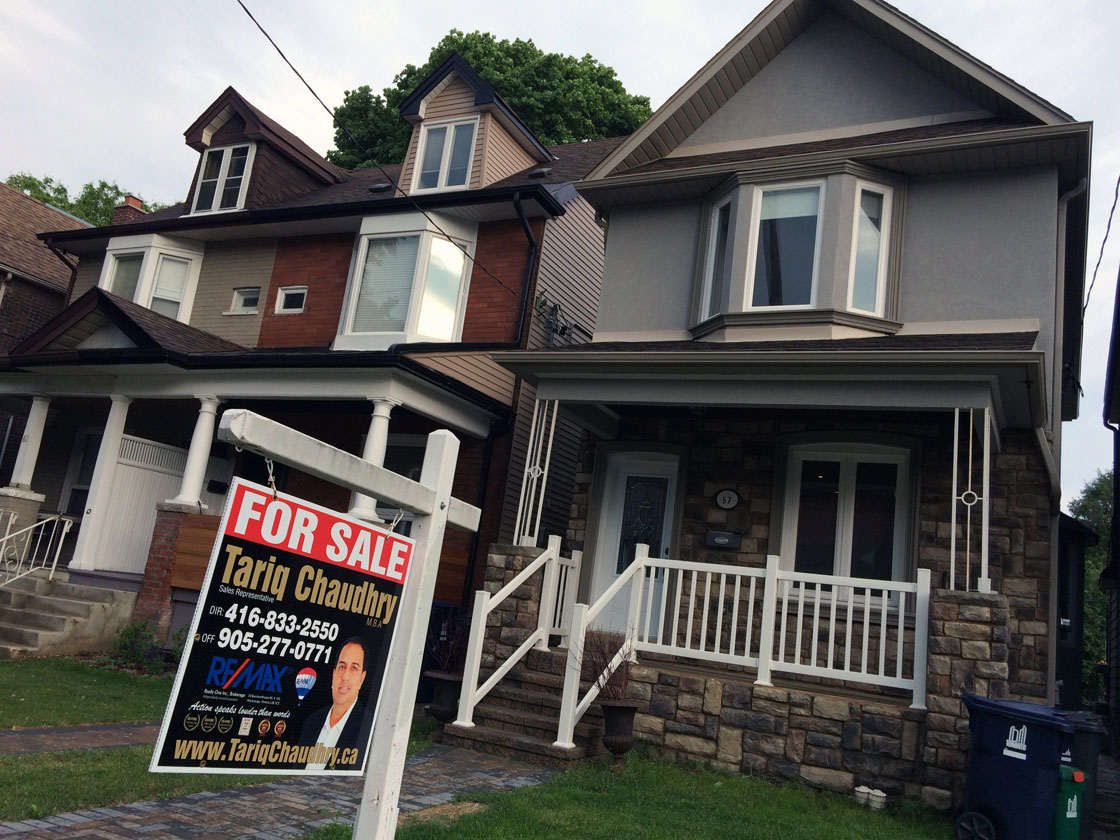Rock-bottom interest rates combined with sustained exuberance among buyers and an assist from a steady flow of foreign cash, according to experts, propelled the Vancouver and Toronto housing markets to new heights in August.

The country’s real estate association said Tuesday benchmark prices in those centres jumped 12 per cent and 10 per cent respectively, posting “by far” the biggest price increases among housing markets across the country.
Aided by low rates, a shortage of detached homes in those regions compared to the number of interested buyers is driving the rapid price inflation, the Canadian Real Estate Association said.
“Prices continue to rise in Ontario and British Columbia, where listings are either in short supply or heading in that direction,” Gregory Klump, CREA’s chief economist, said.
Subdued elsewhere
Price growth was more subdued in other markets, notably in areas hit by lower commodity prices. In Calgary, which continues to feel the effects of sharply lower oil, benchmark home prices were flat – the first time index prices have notched zero growth in four years.
Other markets outside the Vancouver and Toronto areas are also responding in kind to a mild slowdown in the economy, which has registered back-to-back quarters of contraction, or a technical recession.

Get weekly money news
MORE: ‘Best. Recession. Ever.’
The health of the country’s housing market has become a talking point in the federal election, the leaders from the three major parties promising reforms if elected.
MORE: Complete 2015 federal election coverage
But outside of the country’s two biggest and priciest regions, sales data shows a balanced market, experts say.
Excluding the Vancouver and Toronto markets, the jump in national average prices would be cut in half, CREA said. “The national average price continues to be pulled upward by sales activity in Greater Vancouver and Greater Toronto.
Bubble behaviour?
“Overall, while most markets are responding logically to softening domestic economic conditions, Vancouver and Toronto continue to exhibit bubble behaviour,” David Madani, economist at Capital Economics said in a research note this week.
Several media reports in recent months have suggested a steady and rising tide of foreign cash is propping up price growth in big markets. Madani said that is only part of the story, while much of the demand remains from local buyers.
“While foreign investors are no doubt playing some role, we think this explanation is overblown,” the economist said. “Low interest rates and self-fulfilling expectations of higher prices continue to inflate actual prices independently of fundamentals,” he said.
“Over the longer-term, we still believe that these housing markets will experience major price reversals.”
WATCH: Liberal leader Justin Trudeau suggests ‘potential tools’ the federal government has to step in and help regulate runaway housing prices.




Comments